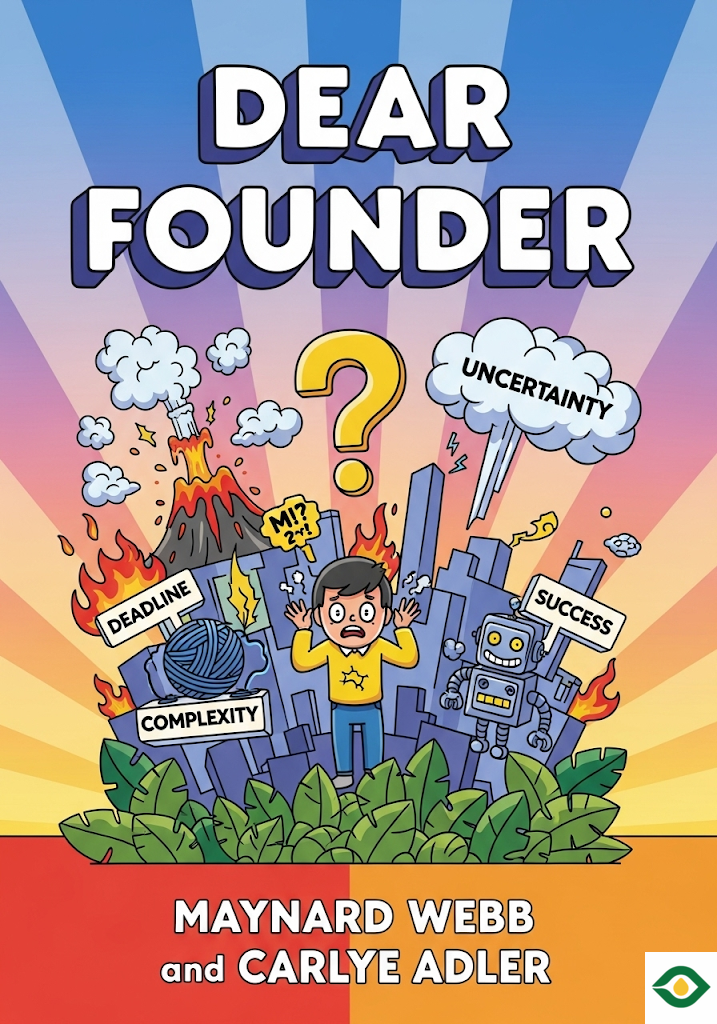Description
Starting a business is exciting, but it is also one of the hardest things you can ever take on. Many new companies never survive their first year, not because the founders lacked talent or vision, but because they made avoidable mistakes. Success in entrepreneurship is not about having a perfect idea. It is about having the discipline to follow simple rules, to stay focused, and to learn from those who have already faced the same battles. This book offers clear lessons for anyone who dreams of building a startup.
The first lesson is commitment. Before launching a company, you must ask yourself why you want to do it. Are you chasing quick money? Do you want to create something that lasts? Do you want to make a difference in the world? Clarity about your goal is what will keep you going when things get hard. Most startups fail, so you must be honest about the risks. Set limits for yourself. Decide how much time and money you are willing to commit before you walk away. If you are willing to put in the hours, face the stress, and keep going even when results are slow, then you are ready to begin. But commitment is not just about you—it also includes the support of your family and friends. Your life will become unpredictable, and you will need their understanding.
The second lesson is fundraising. Every founder quickly learns that raising money is not just about convincing people to give you cash. The real goal is to find investors who understand your industry and can offer more than just money. The best investors share their experience, provide advice, and open doors to important connections. You don’t need dozens of investors. You need a few who truly believe in what you are building. Preparing properly is essential. Go to investor meetings with a clear plan of how their money will help your business grow. Ask for the right amount depending on your stage, and start fundraising early so you are not desperate. Just as important is listening. If several investors tell you that your plan is not clear, take that feedback seriously and improve your approach before moving forward.
The third lesson is about control. Many founders treat their companies like their children and feel the need to manage every small detail. This kind of micromanagement usually backfires. It exhausts you, frustrates your team, and slows down progress. The better approach is to build a company culture where goals are clear and achievements are recognized. Encourage initiative, reward success, and solve problems quickly when employees bring them up. When people feel trusted and supported, they become more independent, and the business runs more smoothly. At eBay, for example, teams solved a huge technical issue much faster because they were used to working with autonomy instead of waiting for approval.
Closely linked to this is the fourth lesson: delegation. Delegation does not mean abandoning responsibility. It means striking the right balance between giving people freedom and maintaining oversight. The RACI model is a simple framework for this. Every task should have someone Responsible for doing it, someone who Approves decisions, people who are Consulted for input, and people who are Informed of progress. This clear structure prevents confusion and makes delegation much more effective.
The fifth lesson is hiring and firing. For startups, every new hire is critical because resources are limited. Think of hiring like giving out Super Bowl tickets—there are only a few, so you must be careful who gets them. Take time to choose people not just for their skills, but for their attitude, their willingness to work hard, and their commitment to serving customers. On the other hand, if someone turns out to be a poor fit, act quickly. A bad employee not only slows the business but also drags down the morale of the rest of the team. Sometimes intervention can help them improve, but if it does not work, it is better to let them go sooner rather than later.
The sixth lesson is stress management. Founders face endless challenges, from technical failures to long hours and constant uncertainty. The key is to remind yourself that nothing lasts forever. Every crisis eventually passes. Instead of panicking, slow down, analyze the problem, and create a plan. Break tasks into priorities and give yourself enough time to complete them. Stress can feel overwhelming in the moment, but calm thinking often reveals that the issue is manageable.
The seventh lesson is about competition. Rivals are a constant reality in business, and sometimes they are huge companies with more money and influence. This can make fundraising harder because investors fear backing the weaker side. The best response is to stay calm and reassure your supporters. Even giants can be challenged. Sometimes competition pushes smaller companies to form alliances, giving them strength they might never have developed otherwise. What seems like a threat can become an opportunity to sharpen your strategy and improve your resilience.
The final lesson is crisis response. Not every problem is a crisis, and reacting without understanding can waste time and energy. The first step is to analyze carefully: is this truly serious, and how urgent is it? Listening to employees is key, since they often spot issues first. Once you know the scale, act quickly. Some situations require an “all hands on deck” approach. Speed can be the difference between survival and disaster. Companies like Tesla have shown how immediate action, such as recalling cars to fix a defect, can save both reputation and lives.
In the end, building a startup is not about avoiding problems but about learning how to face them. Commitment, smart fundraising, trust in your team, careful hiring, calm under stress, and quick crisis management—these are the tools that separate the startups that survive from those that disappear.
Starting a company will test you in every way. It will demand hard work, determination, and the ability to keep your head clear when everything feels uncertain. But if you are ready to embrace these lessons and put them into action, you give yourself a real chance to not just survive, but to thrive in the exciting, unpredictable world of entrepreneurship.





